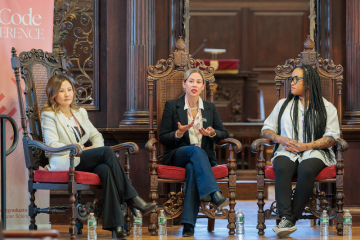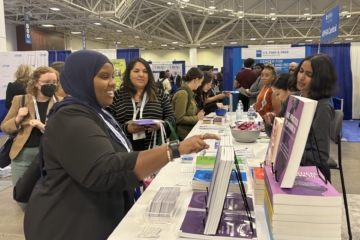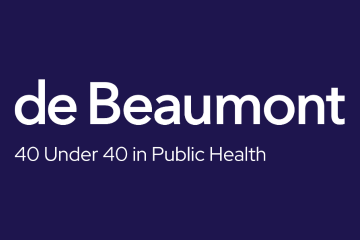Read AZ’s bio. See all 40 Under 40 honorees.
Five Questions for AZ
1. Who or what inspired you to enter the field of public health?
During college, I had a transformative opportunity to work in a safe home for children who had been orphaned by HIV/AIDS. I saw the direct impact of seemingly basic public health interventions, and the devastating consequences when they don’t happen. I started my career in international public health, eventually moving to Baltimore to work for an international health nonprofit. While working on programs around the world, I came home and saw my neighbors suffering terrible health outcomes, despite living in the shadow of one of the best health systems in the world. Those inequities and avoidable outcomes convinced me to take on local public health.
2. What are the greatest challenges you face in your work?
Working in a rural health department is exhilarating, but it comes with some unexpected hurdles. When our team goes to conferences or reads professional newsletters, many of the ideas originate with large urban or state health departments. It’s up to rural health leaders to go back to our communities and sort out how to adapt these innovations to rural, often resource-poor, contexts. I hope we can find new ways for communities like ours to exchange ideas that work as our professional community continues to mature and evolve.
3. As a kid, what did you want to be when you grew up?
The boss. I don’t think I knew what I wanted to be the boss of, but I definitely enjoyed being in leadership roles.
4. Describe yourself in three words.
Curious, strategic, and introverted. I’m a classic INTJ.
5. What would success in public health look like to you?
A seat at the table. Public health professionals are experts on how decisions in other sectors (transportation, land use, education) can impact the health of our communities, but too often we are not considered during the decision-making process. This is partially a branding issue. Local health departments are often thought of as providers of direct care, which is very important, but not the full extent of our capabilities. If I can raise the profile of local public health as a trusted decision-making partner for all sectors, then I’ve done my job as health officer.





